The global IELTS test co-organizers have just released data on IELTS test scores in 2023-2024.
Accordingly, in the academic test, the average IELTS score of Vietnamese people is 6.2, ranking 29th out of 39 countries and territories surveyed.
In 2022, Vietnam's ranking is 23/40.
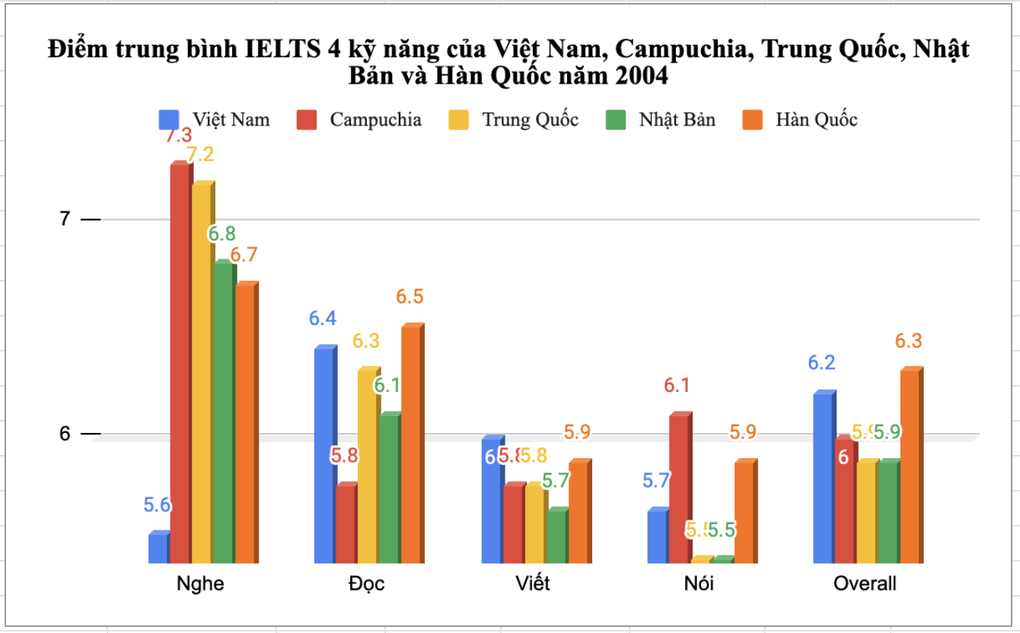
Vietnam's average IELTS score compared to other countries: Cambodia, China, Japan and South Korea (Chart: Hoang Hong).
Specifically, Vietnamese candidates were the worst in listening and speaking skills. The average scores for these two skills were 5.6 and 5.7 respectively, ranking near the bottom of the table at 38/39 and 37/39 respectively.
The best skill is reading with an average score of 6.4, ranked 20/39. The remaining skill is writing with a score of 6, ranked 22/39.
Compared to neighboring Cambodia, Vietnam is 0.2 points higher in total 4 skills.
Meanwhile, the listening skill of Cambodian candidates was 7.3, ranked 3/39, 35 places higher than Vietnam.
Cambodian candidates' speaking skills were 6.1, ranked 28/39, 9 places higher than Vietnam.
Compared to China and Japan, Vietnam ranks much lower in listening skills but higher in the other three skills.
Korean candidates were better than Vietnamese candidates in most skills except writing. The average writing score of Korean candidates was 5.9, 0.1 points lower than Vietnamese candidates and ranked 4 places lower.
Calculating the total score of 4 IELTS skills, Koreans are 2 places higher than Vietnamese people.
Vietnamese candidates' IELTS scores are lower than the world average and much lower in both listening and speaking skills.
Specifically, the world's average IELTS score is 6.38. The average scores for each skill of listening - reading - writing - speaking are: 6.6 - 6.3 - 5.9 - 6.3.
The global IELTS report also shows that in 2023-2024, the most common score for Vietnamese candidates is 6.0. About 21% of candidates achieved this score.
At the following score levels, the rate gradually decreased with a gap of 4-5%. Specifically, 18% of candidates scored 6.5, 13% of candidates scored 7.0, 9% of candidates scored 7.5 and 4% scored 8.0.
Only 1% of Vietnamese candidates achieved 8.5 IELTS and 0.1% of candidates achieved 9.0 IELTS.
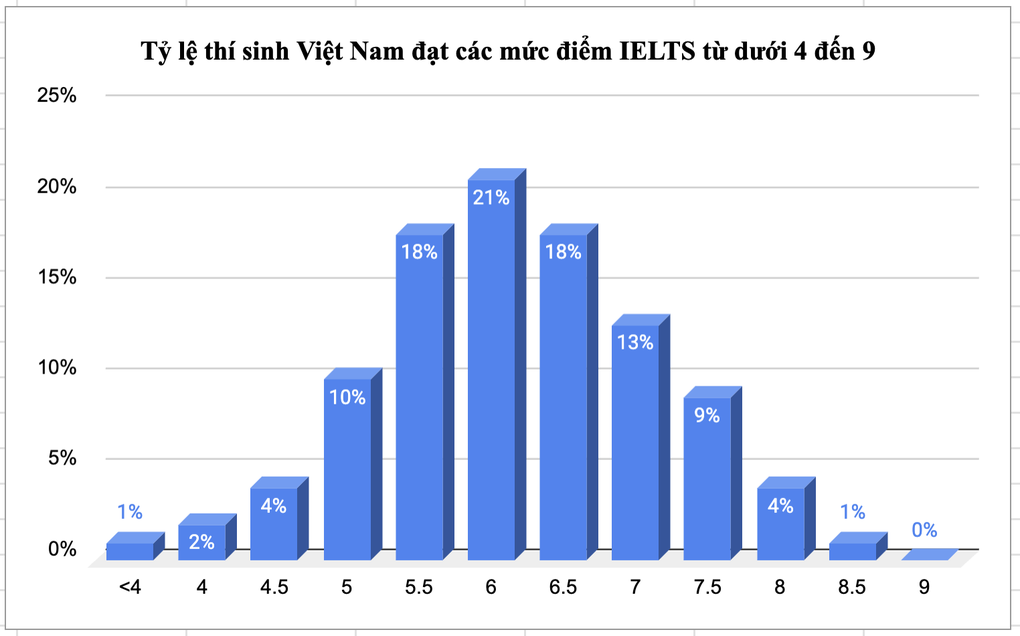
Chart: Hoang Hong
Explaining the decline in Vietnam's IELTS scores, Ms. NTT - an English and IELTS test preparation instructor - commented: "The number of Vietnamese people taking the IELTS test in the past 2-3 years has been increasing. The most common goals are the high school graduation exam and university entrance exam.
With the policy of exempting foreign language exams and converting English scores to 10 when having IELTS certificate 4.0 or higher in high school graduation exam, many candidates have taken IELTS with low goals.
This has contributed significantly to Vietnam's average IELTS score falling."
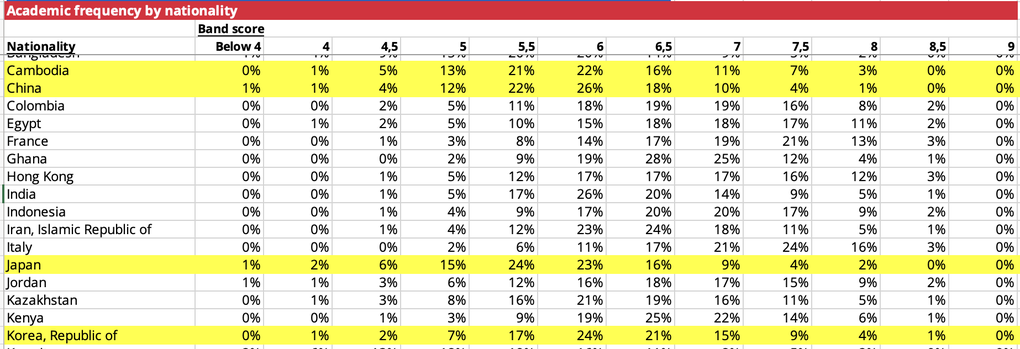
Percentage of candidates achieving IELTS score levels in China, Korea, and Japan (Screenshot).
Ms. T. also pointed out that the increasingly younger age of Vietnamese IELTS candidates is also a factor affecting speaking scores.
"Speaking and writing in the IELTS test require candidates to have social understanding at the level of an adult. In addition, candidates must have logical, analytical and critical thinking. At the age of under 18, they may not have reached the necessary thinking development required for an IELTS test," Ms. T. assessed.
Ms. T. also explained why Vietnamese candidates are weak in listening and speaking skills and better in reading skills: "This is because the traditional way of teaching English in high schools focuses on grammar.
Most public school students do not have a communication environment and do not know how to take advantage of and exploit channels on the internet and social networks to create an effective English practice environment.
Of the 39 countries and territories surveyed, the top two countries in terms of IELTS scores were Malaysia and Spain, with an average score of 7.1. The percentage of test takers achieving 8.0 or above in Malaysia was 25%. For Spain, the figure was 23%.
IELTS is an English proficiency test recognized by more than 12,500 organizations worldwide. In Vietnam, more than 100 universities, high schools and secondary schools use IELTS certificates for admission.
Source: https://dantri.com.vn/giao-duc/vi-sao-diem-ielts-cua-nguoi-viet-thap-hon-trung-binh-cua-the-gioi-20241015145401250.htm








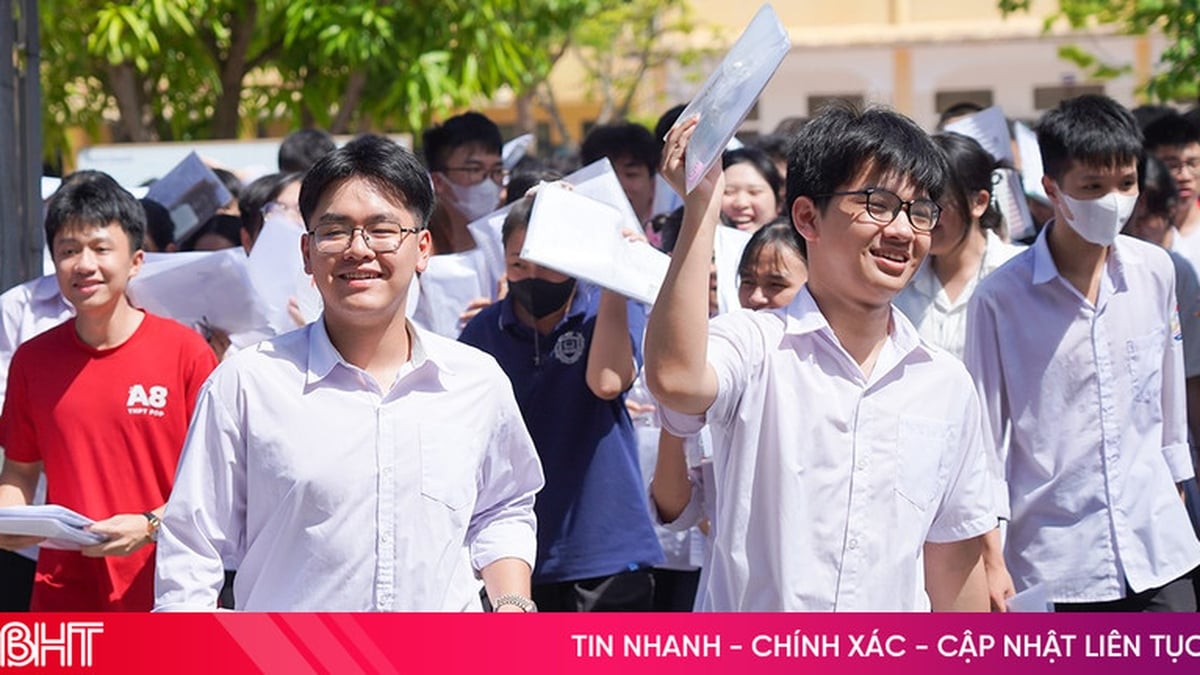



















































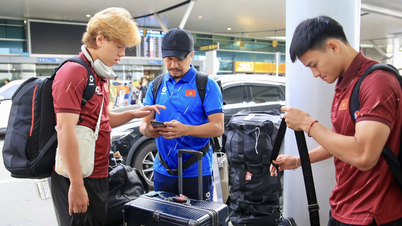







































Comment (0)